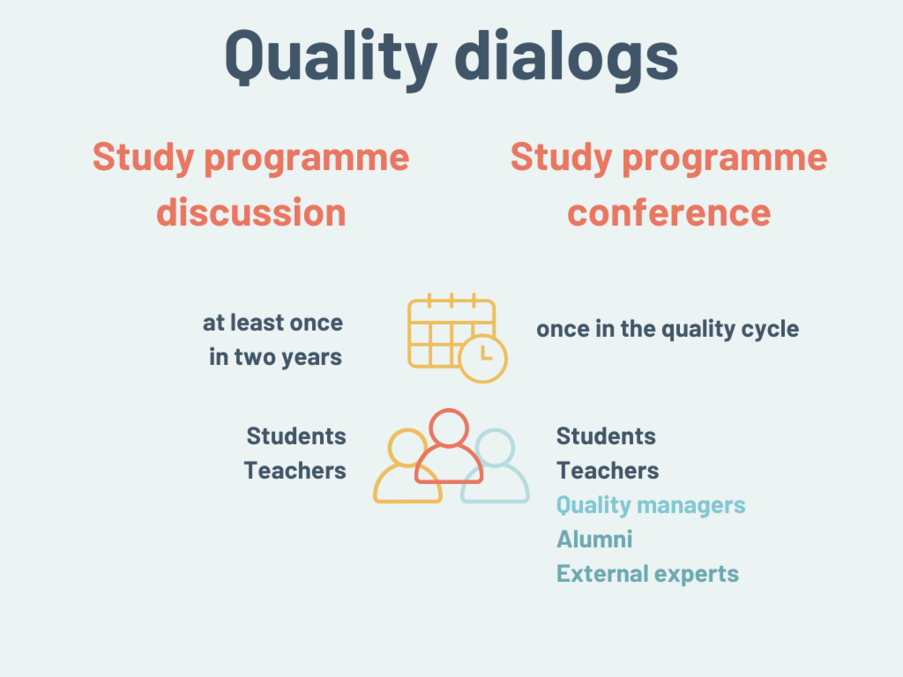Study program discussions and conferences
Discussions and conferences on study programs are the central instruments for quality assurance and development in studies and teaching. They create an atmosphere and culture of dialogue through which the faculties receive 360-degree feedback from students, teaching staff and external parties in a way that cannot be achieved through formalized assessments.
The faculties design the time and structural requirements specified in the quality statutes for the degree program discussions and conferences in accordance with their own infrastructure of quality assurance processes and structures. Specifications on this are to be laid down in the implementation regulations.
This ensures that an exchange of information about the degree program takes place at least once a year between all key stakeholders. By documenting the content and key measures and evaluating them, the maintenance of the quality criteria catalog also ensures that all accreditation-relevant requirements are met.
Study program discussions
... take place in the faculties on an ad hoc basis, but at least once a year and are open to the public.
They are attended by
- the person responsible for the degree program
- students
- professors and lecturers
- other lecturers (according to §4 para. 1 of the OVGU quality charter).
Representatives of the Dean's Office (e.g. FQB/Dean of Studies) must be involved.
Other participants are to be consulted if necessary. External members of the faculty and the FQB must be consulted at least once every quality cycle (max. 8 years, see implementation regulations).
Study program conferences
... are held in public at the university on an ad hoc basis, but at least once every quality cycle. They can replace a degree program discussion.
They are attended by
- the person responsible for the degree program,
- Students (internal and external),
- professors
- other lecturers (according to §4 para. 1 of the OVGU quality charter)
- Representatives of the Dean's Office,
- the responsible decentralized and central quality officer,
- Graduates of the respective degree program,
- professorial subject representatives from other universities and
- representatives of professional practice who are not members of the university.
In the case of cooperative degree programs, appropriate representatives of the cooperating university must be involved. The ZLB and ZWW, the non-university institutions cooperating with the University (e.g. Otto-von-Guericke Business School Magdeburg) and the responsible ministries are granted the right to participate in the relevant degree programs.







